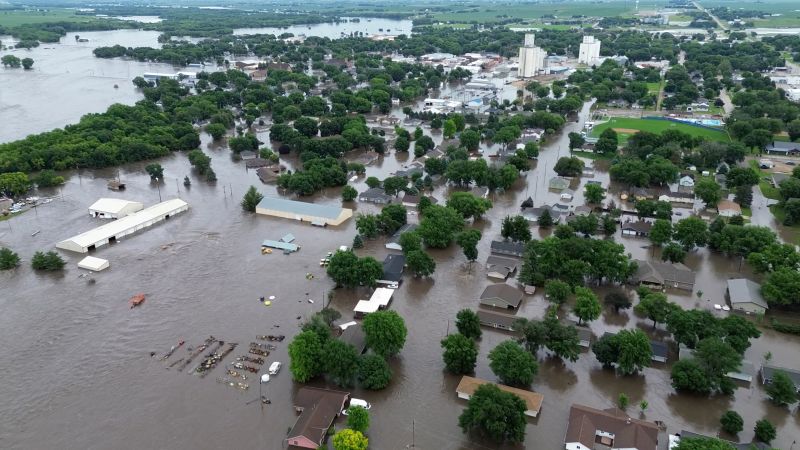The Midwest is currently grappling with severe flooding and an unprecedented heat wave, causing widespread disruption and prompting safety measures across multiple states.
Flooding has heavily impacted northwest Iowa, particularly the town of Rock Rapids, leading to the evacuation of approximately 250 people. Heavy rainfall has inundated homes and streets, creating hazardous conditions and overwhelming local emergency services. The flooding has also caused significant damage to infrastructure, with several roads rendered impassable and emergency crews working tirelessly to rescue stranded residents and mitigate the effects of the rising waters. Yahoo
Simultaneously, the Midwest and parts of the East Coast are experiencing a major heat wave. Heat alerts have been issued for nearly 66 million people, with temperatures soaring above 90 degrees Fahrenheit for millions and surpassing 100 degrees for many others. The National Weather Service has reported that this heat wave could be the longest experienced in decades for some areas, affecting cities from Iowa to Maine.
In response to the heat, officials have opened cooling centers and advised residents to limit outdoor activities. In New York, Governor Kathy Hochul activated the National Guard to assist with heat-related emergencies, underscoring the severity of the situation. The heat wave has led to record-breaking temperatures, such as in Chicago, which reached 97 degrees Fahrenheit, breaking a 1957 record.
Also Read:
- Pizza Delivery Driver’s Generous Tip Helps Muscatine Animal Shelter
- FDA Issues Multi-State Recall of Cucumbers Due to Salmonella Risk
This combination of extreme weather events highlights the urgent need for preparedness and resilience in the face of climate change. The flooding in the Midwest and the ongoing heat wave are stark reminders of the unpredictable and often severe impacts of changing climate patterns on communities across the United States.





